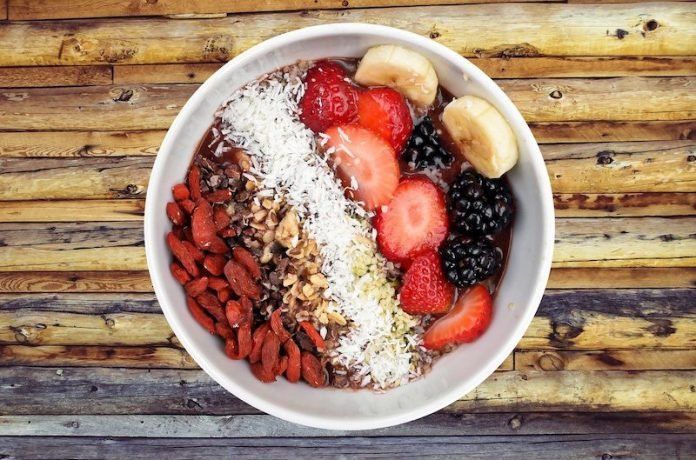
In a new study, researchers found that a short-term intervention in daily fiber consumption can strongly alter the gut microbiome and nutrient intake.
The research was conducted by a team at the University of California, Irvine.
Dietary fiber consists of resistant carbohydrates found in fruits, vegetables and whole grains.
Fiber persists in our digestion system, and while not digestible by humans, our gut bacteria can metabolize fiber into short-chain fatty acids and other byproducts critical to human health.
Currently, the average person in North America consumes less than 50% of the recommended dietary fiber levels due to decreased consumption of plant-based foods, as processed foods have become widespread.
A reduced fiber diet is concerning health officials because low consumption of dietary fiber may be associated with diseases like type II diabetes and colon cancer.
Furthermore, other studies have begun to demonstrate how gut microbial changes can indirectly impact human health.
In the study, the team created a two-week dietary intervention in UCI. Students who participated in the study were given 10 high fiber unprocessed meals each week for two weeks.
During the time, the researchers collected samples to track their gut microbial composition before and after the intervention.
The students also recorded their dietary information of macronutrients to reach a goal of 50 grams/day during a two-week intervention period.
After the intervention, the researchers compared overall bacterial composition using DNA sequencing and measured short-chain fatty acids production using gas chromatography.
In addition to sequencing, the team ran experiments targeting the known-fiber degrader, Bifidobacterium.
They found that the two-week intervention strongly altered individual gut microbiome composition, including an increase in the abundance of Bifidobacterium.
The next step of the team is to carry out longer dietary fiber interventions and study how fiber can support the gut microbiome and promote health.
The researchers encourage everyone to think about the plant diversity of their diets and add some beans, berries, and avocados where they can.
The study is published in mSystems. One author of the study is Katrine Whiteson.
Copyright © 2021 Knowridge Science Report. All rights reserved.



